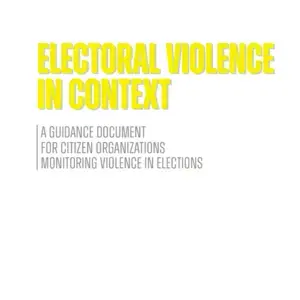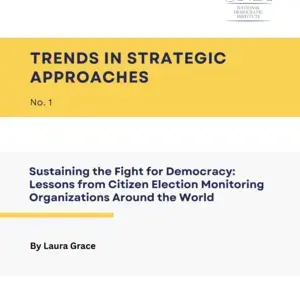TBILISI - Poll results released today by the National Democratic Institute (NDI) and CRRC Georgia show a growing disconnect between citizens and elected officials in Georgia. People mostly expect MPs to serve their party’s interests (75 percent) and their own interests (55 percent), over those of citizens (41 percent), with results even less favorable in Tbilisi. Georgian Dream party supporters have a more positive assessment, with 67 percent believing that their MPs represent their interests. Interaction with parliament is low, with very few people – less than three percent – addressing a concern to parliament/MP or attending committee hearings, although roughly 10 percent did attend public meetings. Only 24 percent of Georgians can correctly name their representative in parliament,over a 30 point drop since last year.
In one of parliament’s key initiatives of 2017 - changes to the constitution - only a quarter of Georgians are aware of the process. Of those aware, only 38 percent report that they have enough information about the amendments and just six percent believe the changes fully reflect public opinion.
“There are a number of ways members of parliament could encourage public participation and demonstrate they represent the interests of their constituents, such as increased public meetings, open office hours, public access to parliament, diverse communication strategies, outreach on legislative drafting, among other activities,” said Laura Thornton, NDI senior country director. “This will become more challenging and essential as Georgia moves to a fully proportional system and bureau offices are closed.”
Given Georgians’ perception of being inadequately represented by politicians, it is not surprising that only half identify with a political party, even just weeks after an election, and that party preferences are largely static compared to previous polls. When asked to choose the party “closest to them,” 31 percent of Georgians identify Georgian Dream (GD), 10 percent United National Movement (UNM), four percent European Georgia, and three percent Alliance of Patriots, with youth support even lower. Results are similar when respondents were asked which party they would vote for, if parliamentary elections were held tomorrow, with 27 percent selecting GD, 10 percent UNM, and three percent European Georgia.
“It appears people, particularly youth, are still waiting for compelling messages from parties about what they would do differently, how they would deliver better outcomes. Until then, it is unlikely we will see any big shifts in party preferences,” said Thornton.
Georgians remain concerned about the disproportionate barriers that women face in public and private life. They believe that there are still too few women in parliament and local governments, and support quota legislation to increase women’s representation in parliament (63 percent). Georgians identify domestic violence (81 percent) and child marriage (72 percent) as problems facing women in Georgia. Georgians are broad in their definition of sexual harassment, with over 80 percent defining demands for sexual favors, creating an uncomfortable working environment, making unwanted advances, and touching a stranger as forms of harassment. An overwhelming majority (77 percent) of citizens support legislation against sexual harassment.
“Decision makers are lagging behind the people, who have consistently been calling for more women in public office,” said Thornton. “Experience in other countries has shown that when more women are in office, some consistent concerns and barriers facing women, such as problems of domestic violence and sexual harassment as identified by Georgians, are prioritized and addressed.”
NDI surveys public opinion to help Georgian stakeholders diagnose and address issues of public concern by providing accurate, unbiased and statistically-sound data. This poll aims to capture the most relevant information to foster the development of responsive policies and governance. A wide range of leaders from across the political spectrum have reported that the polls are important to their work and encourage continued polling.
Survey results reflect data collected from November 29 to December 19, through 2,298 face-to-face interviews with a nationwide representative sample (excluding occupied territories). The average margin of error is +/- 1,9%.
NDI’s survey work is funded with UK aid from the British people. This poll was carried out by CRRC Georgia.
###
NDI is an independent, nonprofit, nonpartisan organization working to support and strengthen democratic institutions worldwide through citizen participation, openness and accountability in government. More information is available at www.ndi.org.
CRRC-Georgia is a non-governmental, non-profit research organization with a mission to promote evidence-based debates on policy issues by providing reliable, up-to-date and accessible data and analysis. More information is available at http://www.crrc.ge




